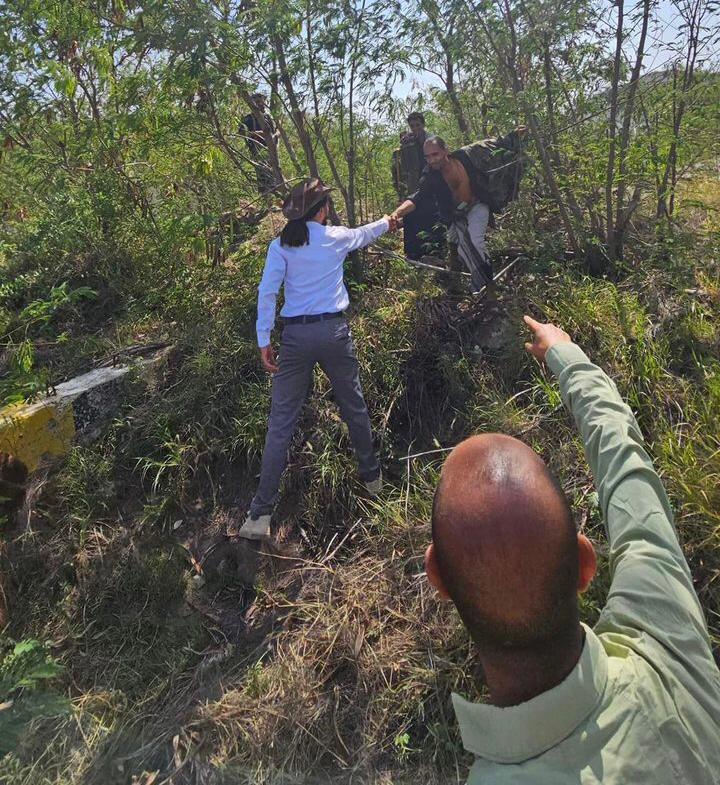
Positive Steps Worthy of Optimism and a Foundation for Future Progress

Mwatana for Human Rights has welcomed initiatives to reopen roads for vehicles and travelers in Hawban (Taiz) and Marib - Al-Bayda, the Thara Abyan-Al-Bayda road, and the Haifan-Aden road, after nearly 10 years of closure and hardship endured by travelers during that period.
Mwatana for Human Rights welcomed the initiatives to open roads to vehicles and travelers, in Al-Hawban (Taiz), Ma’rib - Al-Bayda, of closure and the suffering that travelers experienced during that period.
These initiatives are the result of successful local mediations that convinced the conflicting parties to respond to public demands, which have grown louder in recent months, to reopen the main roads between governorates. The roads to Taiz and Marib had become particularly challenging, forcing travelers to navigate perilous, lengthy detours.
Mwatana for Human Rights sees the reopening of these major roads in Taiz and Marib—after nearly a decade of closure during the years of conflict—as positive steps in the right direction and a sign of hope for further reconciliation between the conflicting parties. This development could alleviate the suffering of civilians and encourages continued efforts to open all closed roads across various Yemeni governorates. Reopening these roads is seen as a prelude to establishing political dialogue channels and finding common ground for peace among the country's political adversaries.
Since the onset of armed conflict in March 2015, cutting off roads has been a significant tactic used by the warring parties in Yemen to violate civilians' rights in various governorates, particularly in Taiz, which has an estimated population of 7 million.
Since 2015, the Ansar Allah (Houthi) group has blocked movement on the main eastern road to and from the city of Taiz, particularly in Hawban (northern Taiz). This blockade forced travelers to use dangerous, lengthy detours that took hours instead of the mere 10 minutes it would have taken on the main road.
People are compelled to navigate narrow, dangerous mountain paths that can extend their journey by hours, often resulting in severe consequences.
Mwatana has repeatedly condemned the policy of road closures and the exacerbation of Yemenis' suffering. The issue of reopening roads and urging the conflicting parties to do so has been a subject of condemnation at official, popular, local, and international levels for nine consecutive years, with little response.
The road closures have significantly exacerbated the suffering of civilians on multiple levels and caused numerous crises. These issues extend beyond the difficulties of travel and transportation between Yemeni governorates. The economic repercussions have been severe, entangled with the complexities of the country's humanitarian crisis. The situation, along with the challenging travel conditions and the imposition of burdensome levies on traders, has led to a sharp increase in the prices of goods, essential supplies, and services. This has made them unaffordable for the vast majority of Yemenis, compounded by their weakened purchasing power, salary disruptions, and the unavailability of most services in various regions of Yemen.
Additionally, the high rate of daily accidents on these hazardous, narrow, and unsuitable roads for heavy trucks and vehicles has resulted in a rising number of casualties and prolonged traffic disruptions, causing substantial damage to goods.
In addition to the many roads closed by the war, the Harad border crossing with Saudi Arabia, Yemen's largest land border crossing (located in the northwest in Hajjah Governorate), remains closed. Its closure for the ninth consecutive year has caused a cascade of suffering not only for travelers and expatriates but also for large segments of the local population who relied heavily on activities linked to the crossing for their income. The city has turned into ruins, with its center surrounded by minefields and combat fortifications since it became a battlefield.
The "International Covenant on Civil and Political Rights," to which Yemen is a party, guarantees the right to freedom of movement. Additionally, Article 13 of the "Universal Declaration of Human Rights" states that "everyone has the right to freedom of movement and residence within the borders of each state." International humanitarian law obliges warring parties to allow neutral humanitarian aid to pass quickly and without obstacles to civilians in need and to facilitate its movement under all circumstances.